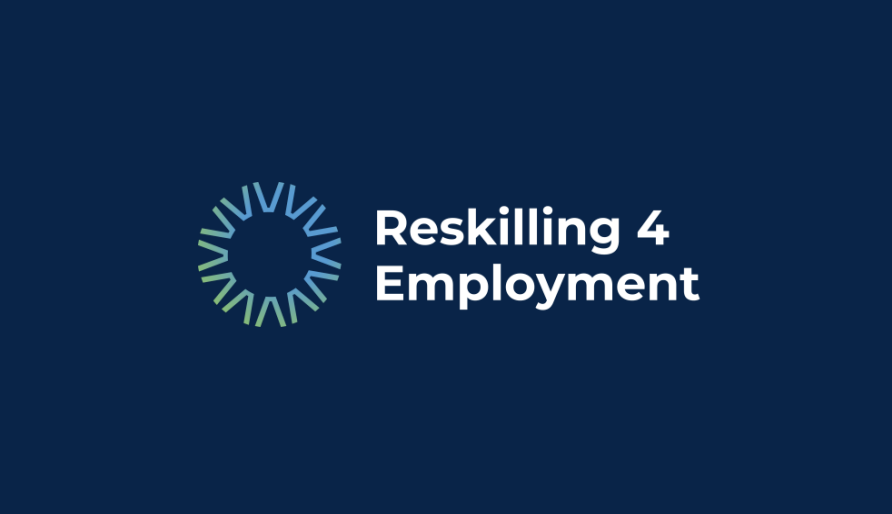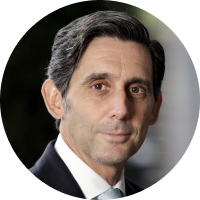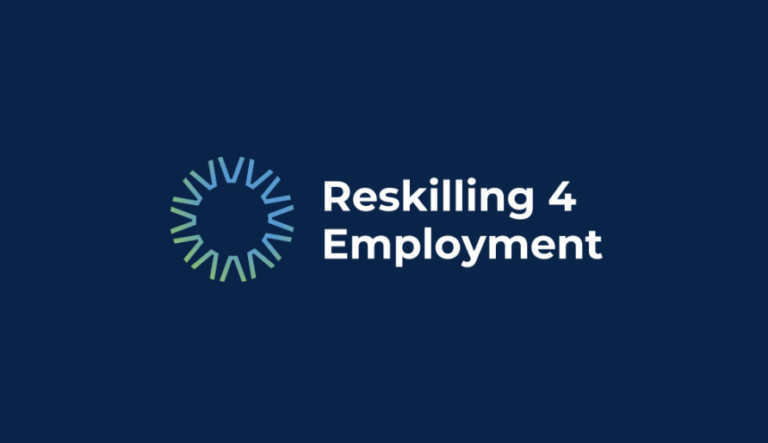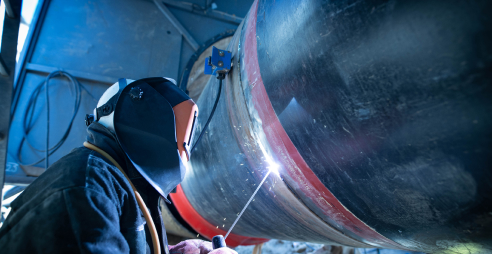
Madrid, 5 July 2022: This week, Madrid plays host to an important meeting of experts in reskilling – with representations of companies and organisations involved in the Reskilling 4 Employment (R4E) programme gathering for a meeting facilitated by Telefónica at the global Innovation and Talent Hub at its headquarters.
Why Reskilling?
As Europe comes to terms with the digital & green transitions and current events underline the need for accelerated step-change, the technological transition required demands a shift in human resources and industrial skills.
With inclusion a touchstone of European values, people will require reskilling for new occupations as their current jobs disappear due to automation and as new types of jobs emerge in the years ahead. The R4E programme ultimately seeks to reskill and secure new employment for up to 5 million people – between now and 2030.
Launched by Paulo Azevedo, Chairman of Sonae, at the Porto Social Summit in May 2021, R4E has been developed by the European Round Table for Industry (ERT). In doing so, the high level forum of 60 CEOs & Chairs of European companies seeks to facilitate the creation of reskilling partnerships with the goal of connecting reskilling providers, employers and jobseekers.
Scaling up & intensifying the work
R4E pilot projects are already underway in 3 EU Member States: Portugal, Spain and Sweden, working with companies led by ERT Members in tandem with local public and private entities.
The companies championing the programme in this first wave include AstraZeneca, Iberdrola, Nestlé, SAP, Sonae, Telefónica and Volvo Group.
R4E accommodates each active country with a national website – complete with translations into the national language – connecting unemployed and at-risk workers with opportunities to acquire new skills and change career path.
This week’s in-person meeting in Madrid brings together relevant experts from a number of as well as representatives from the ERT Secretariat and McKinsey & Co, lead knowledge partner of the programme.
The choice of Madrid as the location is not a coincidence, as it also officially marks the transition of José María Álvarez-Pallete, CEO of Telefónica as leader of the initiative, as part of his new role as Chair of ERT’s Committee Jobs, Skills & Impact.
We are delighted to host this first in-person meeting of the various experts and stakeholders in R4E. Digital education and skills are the backbone for overcoming social gaps and this is why reskilling is one the most important challenges Europe is facing today. We have a unique opportunity to transform the profiles of European citizens and guarantee current and future capabilities.
He added:
R4E is an essential part of the European reskilling ecosystem, with the goal of reskilling 1 million Europeans by 2025. The ambition is very high, and we will scale-up in the current countries where R4E is already launched and are actively seeking to expand into new ones. We encourage additional companies, institutions, and public administrations to join us to urgently address this issue. Private-public cooperation will foster a more inclusive, sustainable, and fair digital society and economy.
The R4E website is at: https://reskilling4employment.eu Watch the video here.
**************
Note to Editors:
A full list of the membership of ERT is accessible here.
CONTACT: Robert O’Meara, Communications Director, ERT
Tel + 32 2 543 10 51 – E-mail: robert.omeara@ert.eu
www.ert.eu – Twitter: @ert_eu
About the European Round Table for Industry (ERT)
The European Round Table for Industry (ERT) is a forum that brings together around 60 Chief Executives and Chairs of leading multinational companies of European parentage, covering a wide range of industrial and technological sectors. ERT strives for a strong, open and competitive Europe, with the EU and its Single Market as a driver for inclusive growth and sustainable prosperity. Companies of ERT Members have combined revenues exceeding €2 trillion, providing direct jobs to around 5 million people worldwide – of which half are in Europe – and sustaining millions of indirect jobs. They invest more than €60 billion annually in R&D, largely in Europe.





